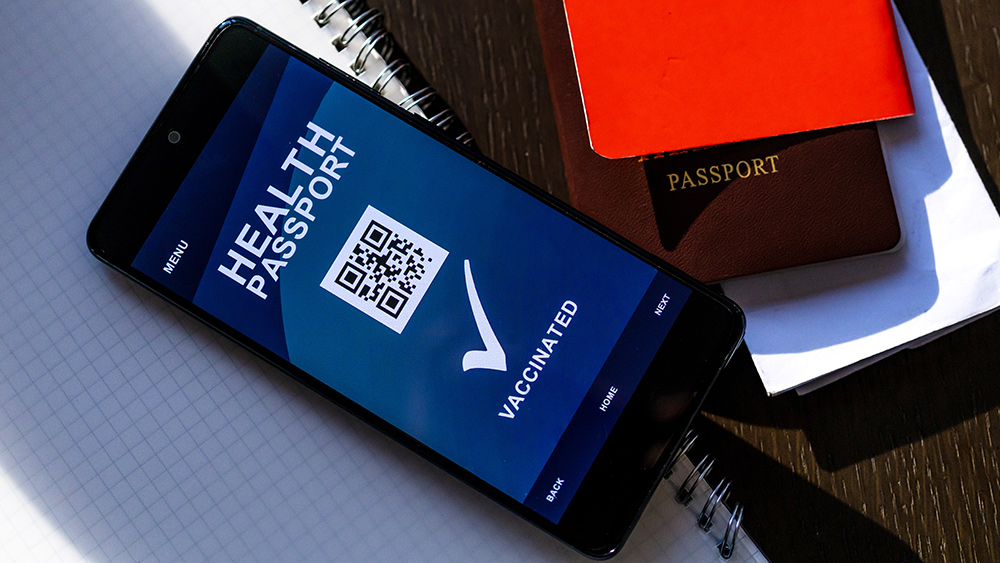AstraZeneca presented US with OUTDATED and CHERRY-PICKED vaccine trial data, concludes independent monitoring board
03/25/2021 / By Arsenio Toledo

AstraZeneca may have cherry-picked its data and included “outdated” information when the company published the results of its U.S. trial for its Wuhan coronavirus (COVID-19) vaccine. This is according to independent experts monitoring the pharmaceutical company’s work.
AstraZeneca has been enduring months of public criticism over the effectiveness and safety of its coronavirus vaccine. This is in part due to how multiple people in Europe may have developed rare blood clots and possibly even died as a result of the company’s vaccine.
On Monday, Mar. 22, the company caught a moment of reprieve when it published the data from the U.S. trial of its vaccine. This trial involved around 32,000 volunteers and found that the vaccine was 79 percent effective in preventing symptomatic COVID-19 cases. The trial data also showed that there were no concerns regarding the vaccine’s safety, none of the volunteers experienced any severe illnesses or hospitalizations and the shot was supposedly working very well for elderly people.
But less than a day after the trial data was published, the National Institutes of Health (NIH) released a statement regarding a letter submitted to it by an independent panel of experts. This independent monitoring board oversaw the AstraZeneca vaccine’s trial.
According to the NIH, the independent monitors “expressed concern that AstraZeneca may have included outdated information from that trial, which may have provided an incomplete view of the efficacy data.”
The independent panel wrote to AstraZeneca and to U.S. public health officials about its concerns regarding the data the company chose to highlight. Specifically, the data from the company do not represent their most recent and complete findings. AstraZeneca stopped publishing data after Feb. 17, more than a month before the study was made public.
“Decisions like this are what erode public trust in the scientific process,” wrote the independent panel.
According to several federal health officials who stood up to AstraZeneca, if the company actually accounted for the full trial data, the vaccine’s purported efficacy would be a lot lower.
The NIH has urged AstraZeneca to “ensure the most accurate, up-to-date efficacy data be made public as quickly as possible.”
Other experts were surprised by the public disagreements between the public health officials and AstraZeneca, as such a spat rarely ever happens. But these same experts noted that, ultimately, the Food and Drug Administration (FDA) is the agency that has to scrutinize the data and decide whether the vaccine is safe enough to be rolled out in the U.S.
“It would seem that, whatever this communication misstep is, at the end of the day the data will have to stand for itself,” said Dr. Jesse Goodman, former chief vaccine scientist of the FDA.
AstraZeneca’s credibility forever tarnished by recent missteps
In response to the independent panel’s report, AstraZeneca stated that the unpublished results are consistent with the information that it has already released.
But whether or not the inclusion of later data will lower the efficacy of the AstraZeneca vaccine, the company’s long-term credibility has already been tarnished. Scientists and investors alike are beginning to second guess the reliability of the company’s vaccine.
Furthermore, many medical experts believe AstraZeneca’s recent actions will go a long way to increasing vaccine hesitancy among the population. This can already be seen in Europe, where more than a dozen companies temporarily halted their use of the AstraZeneca vaccine after reports of rare blood clots and deaths in people who were jabbed with it. (Related: EU IN CRISIS: Deadly rollout of AstraZeneca vaccine destroys EU’s reputation, shatters image of unity within bloc.)
In Norway, a top public health official warned that the government might not be able to resume its use of the AstraZeneca vaccine.
“People clearly say that they do not want the AstraZeneca vaccine,” said Dr. Marte Kvittum Tangen, the leader of a Norwegian doctors’ association.
in Romania, the vaccination coordinator of the capital of Bucharest said around 33,000 immunization appointments were canceled and around 10,000 other appointments ended with the people scheduled to receive the vaccine not showing up. All 43,000 appointments were for the AstraZeneca vaccine.
In the Serbian capital of Belgrade, the local government rented a large exhibition center to vaccinate people with the AstraZeneca vaccine on Monday. This vaccination drive failed when very few people showed up to get the shot.
In France, President Emmanuel Macron initially suggested that the AstraZeneca vaccine should not be used on older people, specifically on adults over 65 years of age. He was forced to backtrack his statements moments later when his government changed its mind.
Scientists and public health officials all over Europe are now looking at the U.S. These experts are waiting for the FDA to greenlight the AstraZeneca vaccine. They believe this will reassure many people who have become skeptical about the shot.
“If the U.S. regulator looks at this data and authorizes AstraZeneca, that will carry a lot of weight,” said Jimmy Whitworth, professor of international public health at the London School of Hygiene and Tropical Medicine.
AstraZeneca has promised to release the rest of its data soon, and the company is hoping to file a proper application for approval with the FDA within weeks.
Learn more about the recent concerns about the AstraZeneca vaccine by reading the latest articles at Vaccines.news.
Sources include:
Tagged Under: AstraZeneca, coronavirus, covid-19, fake data, false data, rigged, science fraud, Vaccine dangers, Vaccine deaths, vaccine injury, vaccine skepticism, vaccine wars, vaccines
RECENT NEWS & ARTICLES
COPYRIGHT © 2017 VACCINE JIHAD





















